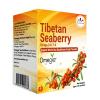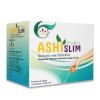How The Immune System Works?
 The basic task of the immune system is to identify what is “self” (naturally belonging to the body) and what is “non-self” (foreign or otherwise harmful material), and then neutralize or destroy that which is non-self.
The basic task of the immune system is to identify what is “self” (naturally belonging to the body) and what is “non-self” (foreign or otherwise harmful material), and then neutralize or destroy that which is non-self.
The immune system is not a physical structure, but a complex of interactions involving many different organ structures and substances. Among them are white blood cells, bone marrow, appendix, tonsils, thymus, spleen, lymphatic vessels and organs, etc. All these components work together to protect our body from infections and diseases. From birth the immune system develops and learns to identify foreign invaders called antigens.
Immune System Boosters Food
Supply your immune system with adequate amounts of nutrients that promote proper immune function. Compounds known as antioxidants – particularly vitamins A, C, and E; selenium and zinc help to maintain a powerful immune response.
All fresh fruits and berries are beneficial for the immune system, but particular good choices include apricots, kiwis, avocados, blueberries, blackberries and strawberries. Among the the best vegetables are broccoli, Brussels sprouts, spinach, kale, watercress, turnip greens, carrots, sweet potatoes, onions and garlic.
Lactobacillus acidophilus is a type of friendly bacteria that normal resides in the intestinal tract. A good way to maintain or replenish your body’s stores of this bacteria is to eat plain yoghurt. Acidophilus is available in granules or capsules that may be taken orally or mixed with juices. Always try to take in an empty stomach, in the morning or before each meals. Do not take them at the same time as antibiotics because antibiotics will kill off the good bacteria along with the bad ones indiscriminately.
Additional beneficial foods are chlorella and pearl barley. These foods contain germanium, a trace element beneficial for the immune system. It is also a good idea to include kelp in your diet in the form of giant red kelp or brown kelp. Kelp has many nutrients like carotene, calcium, iodine, iron, vitamins B and C which are necessary for the immune systems’s functional integrity.
Chinese herbalist have long considered mushrooms to be the most beneficial of all medicinal foods, however, the ordinary culinary mushrooms found at the supermarket are not as advantageous to the immune system as the more exotic reishi, maitake, or shiitake mushrooms. Modern research has determined that these mushrooms can support immune function.








Facebook Comments